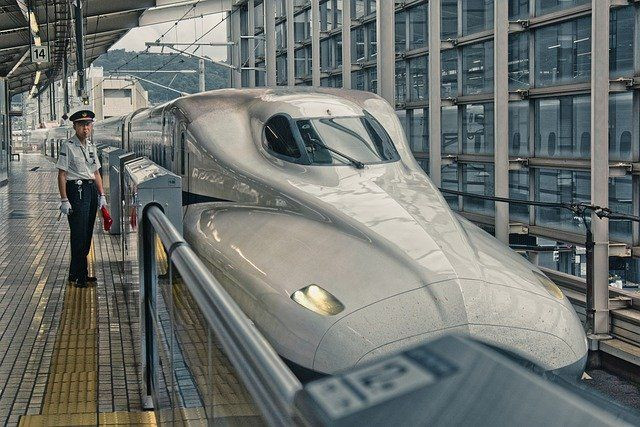Central Japan Railway Co. (JR Central) said Thursday that a driver of a Shinkansen bullet train left the cockpit to use the restroom while the train was traveling at 150 kilometers per hour (approximately 90 miles per hour) with 160 passengers on board in central Japan.
According to JR Central, the 36-year-old driver went out of the Hikari No. 633 train's cockpit for about three minutes after asking a conductor to take his place during his absence at about 8:15 a.m. on Sunday, with the train running between Atami station and Mishima station in Shizuoka Prefecture.
The conductor, 36, did not have the required license to operate the bullet train.
According to the firm, which operates the Tokaido Shinkansen Line connecting Tokyo and Shin-Osaka, this is the first time a driver on its bullet-train line had vacated the cockpit while carrying passengers, though a similar incident occurred in 2001 when a driver was transporting an out-of-service bullet train.
"It is regrettable that government rules were not fully followed," a transport ministry official said in a Japan Times report. Officials added that "security is the priority as (the bullet train) carries people's lives."
In the absence of a driver, Japanese bullet trains will continue to run while gradually slowing down and stopping automatically in an emergency.
The Tokaido Shinkansen Line, Japan's busiest bullet train line, is a dedicated high-speed rail route with no commuter or traditional trains sharing the track. According to JR Central's official website, trains on the line can reach speeds of up to 285 kph (177 mph).
The driver, according to the company, was experiencing abdominal pain. During the driver's absence, The Guardian said the conductor sat in the cockpit on a jump seat and did not touch the controls.
According to JR Central rules, a driver who has a health condition when driving a bullet train must report it to the operations center. Either hand over the controls to a conductor approved to drive or stop the train at the nearest station.
The company discovered the infringement after noticing a pause on the line, with the express train bound for Shin-Osaka passing by Mishima station about one minute behind schedule.
The driver originally told the company that he did not remember what happened because of his stomach pain during a hearing on the matter. A picture of the cockpit, on the other hand, indicated his absence.
Japan's Ministry of Land, Infrastructure, Transport, and Tourism has confirmed the incident JR Central has issued an apology for the driver's behavior, CNN reported. The company also stated that it would enforce rules and raise awareness of best practices among its employees and enforce disciplinary actions to the driver and conductor.
Japanese trains, like bullet trains, are known for their punctuality, with even minor delays being a major source of concern for operators and a focus of media attention.

© 2025 Latin Times. All rights reserved. Do not reproduce without permission.



